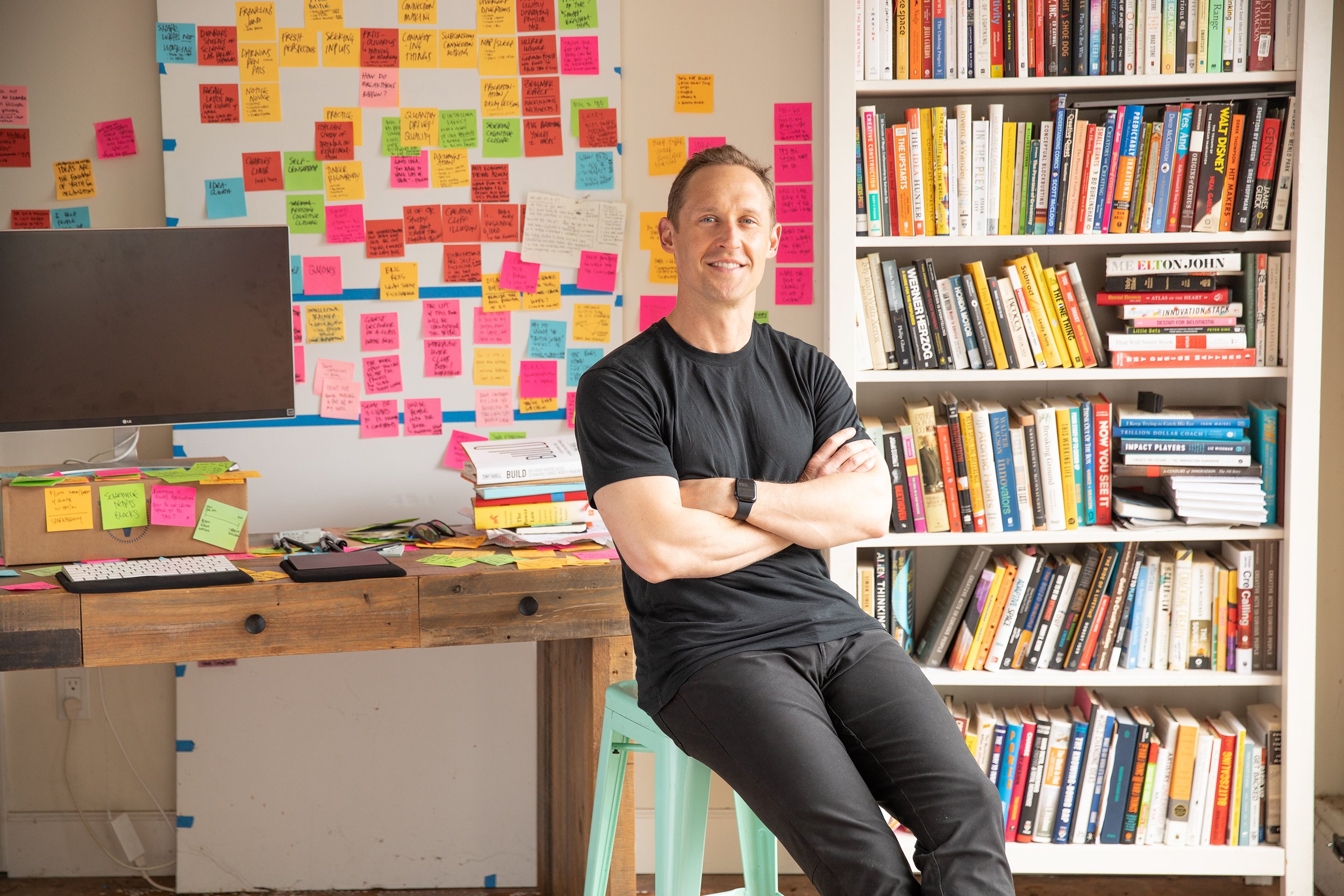
Methods of the Masters
A blog on the art & science of creative action.
Make Sense of Things
The very act of writing serves to reinforce learning. Putting things into our own words turns information into knowledge. And sharing has the potential crystallize that knowledge, not just for others, but even more importantly, for ourselves.
Make It To Make It Better
Philippe Barreaud, Head of Michelin’s Customer Labs, has a hard-won portfolio of insights from leading global innovation for 20+ years. Here, he revels in the paradoxes of prototyping as a toolkit.
Obliterate Compartments
One of the most transformative inputs to shift the trajectory of Phoebe Yao’s start-up, Pareto, came when she least expected it: not during a mind-blowing mentor meeting arranged by a VC, but in a chance encounter with a friend in the park.
The Problem With Solving Problems
I had the privilege of thinking alongside the brilliant Kim Scott, and shared some insights on her “Radical Candor” blog. Re-posting here with her permission. Feedback welcome!
Look For What’s Right
What kind of contributions get rewarded in your workplace? What constitutes brilliance? It’s critical to recognize that the definition of “genius” changes as we shift between convergent and divergent modes of thinking — and what gets rewarded should, too.
Hold A Shoot-Out
Rick Rubin is one of the most successful music producers of all time, in any genre. His approach to production has more in common with technology innovators like Steve Jobs than some fans might think.
Edit Your Subject Line
Early stage founder gets devastating feedback on a rough concept pitch. What should she do? Don’t give up quickly! Make small tweaks before making big pivots.
Don’t Eliminate Failure
What if eliminating failures reduced the likelihood of a breakthrough. There’s lots of research that suggests that’s the case. So why do we carefully craft policies designed to eliminate failure?
Practice What You Preach
A legendary assignment at Stanford puts students face to face with critical gaps in their life. Identifying those gaps is straightforward enough, but closing them is the real design challenge!
Correspond Broadly
Charles Darwin, while working on the theory of natural selection, wrote an astounding 15,000 letters to over 230 collaborators across more than 10 different scientific fields. Few appreciate the power of sharing partially-formulated thoughts as much as he did.
Vary Cooking Methods
Today’s post comes from Chris Aho, an integral member of the ideaflow council. Chris writes about his 20+ year responsibility to deliver fresh material weekly — and what that taught him about cooking up ideas.
Delay Decisions
John Cleese highlights a classic study of architects in his recent memoir, “Creativity: A Short and Cheerful Guide,” which illuminates the value of purposeful procrastination, and how it sets creatives apart.
Set An Absurd Deadline
Whitney Burks is one of the most creative people I know. She boasts prodigious output across a varied stream of responsibilities and interests. Her secret: “obscene, ostentatious deadlines.”
Embrace Your B-Team
This post comes from super-designer, Adam Weiler, Global Manager of Social Innovation at Steelcase. Adam writes, “…
Treasure the Night Watch
B.F. Skinner is one of the most influential psychologists of all time. His strict working habits reveal not only how he became such a prodigious writer, but also how he became such an inventive researcher: he made the most of the night watch!
Keep A Junk Pile
How does one increase the velocity of experimentation? According to Thomas Edison, “To invent, you need a good imagination and a pile of junk.”
Reduce Experimental Fidelity
Every innovator should know how to craft clever experiments; but one clever experiment is hardly sufficient. One critical insight is that quantity matters - as does resolution, and velocity.
Create A Portfolio
We tell our students at Stanford to create portfolios of early stage directions for a simple reason: it increases the likelihood of success. Research shows that we’re unlikely to select our highest-potential idea.
Have Lots of Ideas
Linus Pauling, the only person in history to win two individual Nobel Prizes, succinctly describes the essence of productive creativity: “The best way to have a good idea is to have lots of ideas.” Sounds simple enough. But just how many is “lots”?
Prophecy Over Your Children
A theme has emerged in my studies of breakthrough thinkers: the role that parents play in shaping aspirations. Breakthrough parents not only plant bold dreams in their kids’ hearts, but they also prove willing to make the sacrifices necessary to realize those dreams.




















